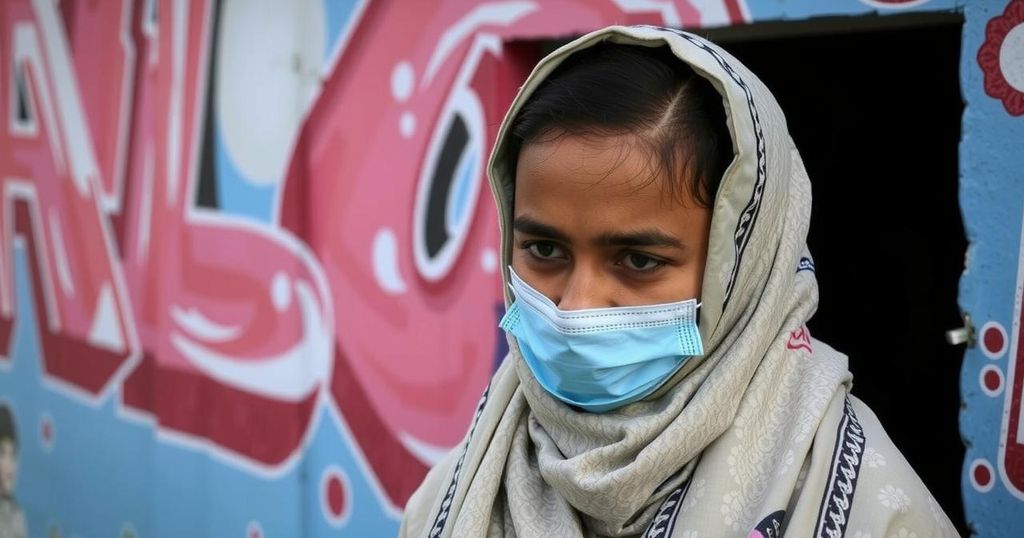Lebanon Crisis Strands 177,000 Migrant Workers Amid Abandonment and Violence

The conflict in Lebanon has stranded around 177,000 migrant workers, predominantly women, as their employers flee violence. Many face abandonment under the exploitative kafala system, leading to harsh living conditions such as homelessness and exposure to violence. Community organizations are providing support, but the scale of the crisis and rising evacuation flight costs pose considerable challenges. Governments need to take urgent action to assist these vulnerable individuals.
The ongoing conflict in Lebanon, intensified by a Hamas-led attack on Israel, has led to significant casualties and displacement. Amid this turmoil, approximately 177,000 migrant workers, predominantly women from Africa and Asia, are experiencing severe vulnerability as employers abandon them and flee the violence. One such worker, Lina, a 29-year-old housekeeper from Kenya, now faces isolation in her Beirut apartment as she navigates a precarious situation without support.
The crisis has brought to light the exploitative nature of the kafala system, which links the legal status of migrant workers to their employers, effectively trapping many in abusive situations. As Lebanese nationals seek safety, the living conditions of low-paid migrant workers have come under scrutiny, with overcrowded shelters unable to accommodate the increasing number of displaced individuals. Many are finding themselves forced to sleep on the streets, facing a heightened risk of violence and sexual assault, particularly women. In response, community organizations such as Egna Legna are mobilizing to assist abandoned workers, yet their resources remain stretched thin.
According to Banchi Yimer, founder of Egna Legna, her team has identified over a thousand abandoned migrant workers within just a few days, indicating an urgent need for support. Despite the limited resources provided by some embassies, including those from Ethiopia, Sri Lanka, and the Philippines, many migrants continue to languish in dire conditions without options for repatriation. The exorbitant costs of evacuation flights, now more than double the usual rates, pose insurmountable barriers for those stranded.
Additionally, the Kenyan government has issued travel warnings due to the absence of formal labor agreements and protections. However, such warnings do little to alleviate the suffering of those currently trapped. Vionnah Kerubo, another Kenyan domestic worker, finds herself in a similarly distressing situation, as her employer refuses to release her amid escalating bombings. This crisis echoes the plight of migrant workers during the COVID-19 pandemic when many were left behind as employers faced financial difficulties. The inadequate response from consulates has heightened the impact of the crisis, underscoring the need for solidarity among migrant workers who are now compelled to lean on one another for support.
The current situation in Lebanon serves as a complex backdrop, influenced by a history of conflict and socio-political challenges. The recent military escalation has severely impacted the population, particularly vulnerable groups such as migrant workers. These individuals, often engaged in domestic roles, are now facing dire circumstances that highlight systemic issues related to labor exploitation. The kafala system, prevalent in many Middle Eastern countries, has made it exceptionally difficult for migrant workers to find themselves in safe and legally protected environments, particularly in times of crisis. The response from governments and international organizations has been criticized as inadequate, leaving many individuals without the needed assistance or resources to escape dangerous situations.
In summary, the ongoing crisis in Lebanon has left approximately 177,000 migrant workers in dire circumstances following the abandonment by their employers. The exploitative kafala system has compounded the vulnerability of these individuals, as overcrowded shelters and rising evacuation costs hinder their ability to find safety. Organizations like Egna Legna are making significant efforts to address the needs of those affected, yet the scale of the crisis presents considerable challenges. Ultimately, this situation calls for urgent action and comprehensive support from governments and international bodies to safeguard the rights and wellbeing of migrant workers.
Original Source: www.mwakilishi.com








